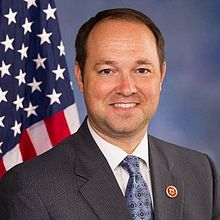Donald Trump Jr. fears that his father will lose the election in November—and this will lead to the prosecution of his family.
“He’s like, ‘We’re losing, dude, and we’re going to get really hurt when we lose,’” a prominent conservative activist quoted Trump Jr. to the New York Times on August 24.
Trump Jr. believes that if Biden wins, there will not be a “peaceful transition,” Instead, the administration will “shoot the prisoners.”
The U.S. Department of Justice has a longstanding policy against prosecuting a sitting President. All bets are off, however, once that President leaves office.
And President Donald Trump has good reason to worry on that count.
He could easily face charges of obstruction of justice by attempting to fire Special Counsel Robert Mueller, the man appointed to investigate the Russian government’s interference in the 2016 Presidential election.

Robert Mueller
On June 17, 2017, Trump directed White House counsel Don McGahn to get Deputy Attorney General Rod Rosenstein to remove Mueller, telling him “you gotta do this.”
McGahn didn’t comply. Trump called him the next day. McGahn considered resigning, then stayed—didn’t didn’t act on Trump’s order.
Former federal prosecutor Gene Rossi has stated that Trump could be indicted after leaving office.
During his nearly 30-year career with the Department of Justice, Rossi participated in more than 110 federal trials (including an unprecedented 90 jury trials) in U.S. district and bankruptcy courts. From 1989-2001, he worked in the Tax Division, trying complex civil and criminal matters and serving on an Organized Crime Drug Enforcement Task Force (OCDETF).
“If it were Donald Smith instead of Donald Trump, Donald Trump would have been indicted a year ago for the campaign violations,” he told Hill.TV in July, 2019.
On December 10, 2019, Trump paid $2 million to eight charities as part of a settlement where he admitted to misusing funds raised by the Donald J. Trump Foundation. These had been used to promote his presidential bid and pay off business debts.
It’s illegal for charitable foundations to advance the self-interests of their executives.
He was forced to close the charity as a result.
Donald Trump
Legal action also forced Trump to shut down his unaccredited Trump University, which the conservative magazine National Review described as a “massive scam.”
Although he boasted that he never settled lawsuits, he settled this one in November, 2016, for a reported $25 million rather than go to trial.
Investigations are now probing allegations of tax dodges, illegal campaign contributions, and improper foreign contributions to his inaugural committee.
There has been a great deal of speculation by Trump’s political foes as to what would happen if (a) he loses the election and (b) refuses to vacate the White House.
But, so far, no one seems to have raised the question: What if a defeated Trump, fearing civil and criminal prosecution after he leaves the White House, decides to avoid this by literally destroying much of the world in a nuclear war?
This is not so outrageous an idea as it may sound.
“If Adolf Hitler had possessed a button that would destroy the entire world, he would have pushed it at the end,” Albert Speer, Hitler’s architect and Minister of Armaments, said in a 1971 Playboy interview. “Today there are such buttons in the war rooms of all the great powers.”
Adolf Hitler
Trump has already threatened such action against North Korea: “North Korea best not make any more threats to the United States. They will be met with fire and fury like the world has never seen.”
He has even seriously advocated using nuclear bombs to stop hurricanes from hitting the United States,
An additional reason for Trump’s playing Samson in the temple: He resides at the center of his own universe, and sees virtually everything as an extension of himself.
On August 23, 2018, Trump gave his rationale for why he shouldn’t be impeached. He didn’t say: “I’m innocent. I didn’t collude with Russian Intelligence to subvert the 2016 Presidential election.”
Instead, he said: “I tell you what, if I ever got impeached, I think the market would crash, I think everybody would be very poor.”
Trump’s egomania is literally stamped on his properties. Of the 515 entities he owns, 268 of them—52%—bear his last name. He often refers to his properties as “the swankiest,” “the most beautiful.”
Among the references he’s made to himself:
- “My fingers are long and beautiful, as, it has been well documented, are various other parts of my body.”
- “I think the only difference between me and the other candidates is that I’m more honest and my women are more beautiful.”
- “My Twitter has become so powerful that I can actually make my enemies tell the truth.”
- “My IQ is one of the highest—and you all know it.”
The Roman emperor Nero reportedly played the lyre and sang of Troy’s destruction while Rome burned. Adolf Hitler, in the last weeks of the Third Reich, salivated at the thought of destroying what was left of Germany.
Trump has repeatedly shown his contempt for civil and criminal laws—including those enshrined in the United States Constitution.
Thus, revenging himself on those he felt wronged him would be fully in keeping with his character.






2016 PRESIDENTIAL CAMPAIGN, 2020 PRESIDENTIAL CAMPAIGN, ABC NEWS, ADOLF HITLER, ALBERT SPEER, ALTERNET, AMERICABLOG, AP, BABY BOOMER RESISTANCE, BLOOMBERG, BUZZFEED, CBS NEWS, CIVIL LAWSUITS, CNN, CRIMINAL PROSECUTION, CROOKS AND LIARS, DAILY KOZ, DON MCGAHN, DONALD J. TRUMP FOUNDATION, DONALD TRUMP, DONALD TRUMP JUNIOR, DRUDGE REPORT, EGOMANIA, FACEBOOK, FIVETHIRTYEIGHT, GENE ROSSI, HARPER’S MAGAZINE, HUFFINGTON POST, IMPEACHMENT, IRAN, MEDIA MATTERS, MOTHER JONES, MOVEON, MSNBC, NBC NEWS, NERO, NEWSWEEK, NORTH KOREA, NPR, NUCLEAR WAR, NUCLEAR WEAPONS, PBS NEWSHOUR, POLITICO, POLITICUSUSA, RAW STORY, REUTERS, ROBERT MUELLER, ROD ROSENSTEIN, SALON, SAMSON, SEATTLE TIMES, SLATE, STOCK MARKET, TALKING POINTS MEMO, THE ATLANTIC, THE CHICAGO SUN-TIMES, THE CHICAGO TRIBUNE, THE DAILY BEAST, THE DAILY BLOG, THE GUARDIAN, THE HILL, THE HUFFINGTON POST, THE LOS ANGELES TIMES, THE NATION, THE NEW REPUBLIC, THE NEW YORK TIMES, THE VILLAGE VOICE, THE WASHINGTON POST, THINKPROGRESS, TIME, TRUMP UNIVERSITY, TRUTHDIG, TRUTHOUT, TWITTER, TWO POLITICAL JUNKIES, U.S. JUSTICE DEPARTMENT, U.S. NEWS & WORLD REPORT, UNITED STATES CONSTITUTION, UPI, USA TODAY, WONKETTE
TRUMP AS SAMSON IN THE TEMPLE
In Bureaucracy, History, Law, Law Enforcement, Politics, Social commentary on November 20, 2020 at 12:30 amDonald Trump Jr. feared that his father would lose the 2020 election—and this would lead to the prosecution of his family.
“He’s like, ‘We’re losing, dude, and we’re going to get really hurt when we lose,’” a prominent conservative activist quoted Trump Jr. to the New York Times on August 24.
Trump Jr. believed that if Biden won, there would not be a “peaceful transition,” Instead, the administration would “shoot the prisoners.”
The U.S. Department of Justice has a longstanding policy against prosecuting a sitting President. All bets are off, however, once that President leaves office.
And President Donald Trump has good reason to worry on that count.
He could easily face charges of obstruction of justice by attempting to fire Special Counsel Robert Mueller, the man appointed to investigate the Russian government’s interference in the 2016 Presidential election.
Robert Mueller
On June 17, 2017, Trump ordered White House counsel Don McGahn to tell Deputy Attorney General Rod Rosenstein to fire Mueller.
McGahn didn’t comply. Trump called him the next day. McGahn considered resigning, then stayed—but didn’t carry out Trump’s order.
Former federal prosecutor Gene Rossi has stated that Trump could be indicted after leaving office.
During his nearly 30-year career with the Department of Justice, Rossi participated in more than 110 federal trials (including an unprecedented 90 jury trials) in U.S. district and bankruptcy courts.
From 1989-2001, he worked in the Tax Division, trying complex civil and criminal matters and serving on an Organized Crime Drug Enforcement Task Force (OCDETF).
“If it were Donald Smith instead of Donald Trump, Donald Trump would have been indicted a year ago for the campaign violations,” he told Hill.TV in July, 2019.
On December 10, 2019, Trump paid $2 million to eight charities as part of a settlement where he admitted to misusing funds raised by the Donald J. Trump Foundation. These had been used to promote his presidential bid and pay off business debts.
It’s illegal for charitable foundations to advance the self-interests of their executives.
He was forced to close the charity as a result.
Donald Trump
Legal action also forced Trump to shut down his unaccredited Trump University, which the conservative magazine National Review described as a “massive scam.”
Although he boasted that he never settled lawsuits, he settled this one in November, 2016, for a reported $25 million rather than go to trial.
New York investigations are now probing allegations of tax dodges, illegal campaign contributions, and improper foreign contributions to his inaugural committee.
There has been a great deal of speculation by Trump’s political foes about what might happen if (a) he lost the election and (b) refused to vacate the White House.
But no one has raised the question: What if a defeated Trump, fearing civil and criminal prosecution after he leaves the White House, decides to avoid this by literally destroying much of the world in a nuclear war?
This is not so outrageous an idea as it may sound.
“If Adolf Hitler had possessed a button that would destroy the entire world, he would have pushed it at the end,” Albert Speer, Hitler’s architect and Minister of Armaments, said in a 1971 Playboy interview. “Today there are such buttons in the war rooms of all the great powers.”
Adolf Hitler
Trump has already threatened such action against North Korea: “North Korea best not make any more threats to the United States. They will be met with fire and fury like the world has never seen.”
He has even seriously advocated using nuclear bombs to stop hurricanes from hitting the United States.
And on November 16, The New York Times reported that Trump asked senior advisors for options on attacking Iran’s uranium enrichment facility at Natanz, 190 miles south of Tehran, the center of its nuclear program.
An additional reason for Trump’s playing Samson in the temple: He resides at the center of his own universe, and sees virtually everything as an extension of himself.
On August 23, 2018, Trump gave his rationale for why he shouldn’t be impeached. He didn’t say: “I’m innocent. I didn’t collude with Russian Intelligence to subvert the 2016 Presidential election.”
Instead, he said: “I tell you what, if I ever got impeached, I think the market would crash, I think everybody would be very poor.”
Trump’s egomania is literally stamped on his properties. Of the 515 entities he owns, 268 of them—52%—bear his last name. He often refers to his properties as “the swankiest,” “the most beautiful.”
Among the references he’s made to himself:
The Roman emperor Nero reportedly played the lyre and sang of Troy’s destruction while Rome burned. Adolf Hitler, in the last weeks of the Third Reich, salivated at the thought of destroying what was left of Germany.
Trump has repeatedly shown his contempt for civil and criminal laws—including those enshrined in the United States Constitution.
Thus, revenging himself on those he felt wronged him would be fully in keeping with his character.
Share this: